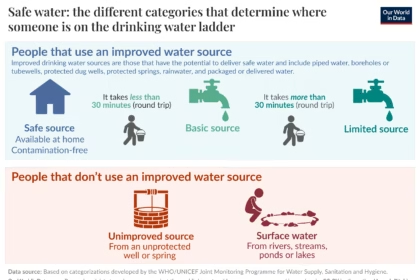
The AI Revolution in Corporate Leadership
In today’s rapidly evolving business landscape, artificial intelligence (AI) is revolutionizing the way corporate leaders make decisions. The integration of AI technologies into leadership practices has ushered in a new era of data-driven strategy formulation and execution. CEOs across industries are recognizing the immense potential of AI to enhance their decision-making capabilities, streamline operations, and gain a competitive edge in the market.
This technological revolution is not merely about automating routine tasks; it’s fundamentally transforming the role of leadership itself. AI-powered tools are enabling executives to process vast amounts of information, identify patterns, and generate insights that were previously beyond human capacity. As a result, CEOs are now equipped to make more informed, timely, and effective decisions that can significantly impact their organizations’ success.
However, the adoption of AI in leadership is not without its challenges. It requires a delicate balance between leveraging technological capabilities and maintaining the human touch that is essential for effective leadership. As we delve deeper into this topic, we’ll explore how CEOs are navigating this new terrain and harnessing the power of AI to drive their organizations forward.

Understanding AI’s Role in Strategic Decision-Making
Artificial intelligence plays a pivotal role in augmenting the strategic decision-making process for CEOs. By analyzing vast amounts of structured and unstructured data, AI systems can provide leaders with comprehensive insights that inform their choices. These systems excel at identifying trends, predicting outcomes, and evaluating potential risks and opportunities that might otherwise go unnoticed.
One of the key strengths of AI in decision-making is its ability to process information objectively, free from human biases that can sometimes cloud judgment. This objectivity allows CEOs to consider a wider range of options and scenarios, leading to more balanced and well-informed decisions. Additionally, AI-powered simulations and forecasting models enable leaders to test different strategies in virtual environments before implementing them in the real world, reducing the risk of costly mistakes.
Moreover, AI enhances the speed and agility of decision-making processes. In today’s fast-paced business environment, the ability to make quick yet informed decisions can be a significant competitive advantage. AI systems can continuously monitor market conditions, consumer behavior, and internal performance metrics, providing real-time insights that allow CEOs to respond swiftly to changing circumstances and emerging opportunities.
How CEOs Are Leveraging AI for Competitive Advantage
Forward-thinking CEOs are increasingly recognizing AI as a powerful tool for gaining a competitive edge in their respective industries. By integrating AI into their strategic planning and operational processes, these leaders are able to optimize resource allocation, improve customer experiences, and drive innovation at an unprecedented pace.
One area where AI is proving particularly valuable is in customer relationship management. CEOs are leveraging AI-powered analytics to gain deeper insights into customer preferences, behaviors, and needs. This information allows them to tailor products and services more effectively, anticipate market trends, and create personalized marketing strategies that resonate with their target audience. As a result, companies can build stronger customer loyalty and capture a larger market share.
In addition to enhancing customer-facing operations, AI is also being used to streamline internal processes and boost productivity. CEOs are implementing AI-driven automation in areas such as supply chain management, financial forecasting, and human resources. These applications not only reduce costs and improve efficiency but also free up human employees to focus on more creative and strategic tasks that require emotional intelligence and complex problem-solving skills.
Key AI Technologies Transforming Leadership Practices
Several AI technologies are at the forefront of transforming leadership practices across industries:
- Machine Learning (ML): This subset of AI enables systems to learn and improve from experience without being explicitly programmed. CEOs are using ML algorithms to:
- Predict market trends
- Optimize pricing strategies
- Detect fraud and manage risk
- Natural Language Processing (NLP): NLP allows machines to understand, interpret, and generate human language. Leaders are leveraging NLP for:
- Sentiment analysis of customer feedback
- Automated report generation
- Enhancing communication with global teams
- Computer Vision: This technology enables machines to interpret and make decisions based on visual data. CEOs are applying computer vision in:
- Quality control processes
- Security and surveillance
- Augmented reality for product development
- Predictive Analytics: By analyzing historical data, predictive analytics helps forecast future trends and behaviors. Executives use this technology for:
- Demand forecasting
- Employee retention strategies
- Financial modeling
- Robotic Process Automation (RPA): RPA automates repetitive tasks, allowing leaders to:
- Streamline back-office operations
- Improve data accuracy
- Increase operational efficiency
These technologies, when integrated effectively, provide CEOs with a powerful toolkit to enhance their decision-making capabilities and drive organizational success.
Case Studies: CEOs Successfully Implementing AI in Decision-Making
Case Study 1: Retail Giant’s Inventory Optimization
The CEO of a major retail corporation implemented an AI-driven inventory management system across their stores. The system analyzed historical sales data, seasonal trends, and external factors such as weather patterns and local events to predict demand accurately. As a result:
- Inventory carrying costs decreased by 15%
- Stock-outs reduced by 30%
- Overall profitability increased by 8%
The CEO’s decision to invest in this AI technology not only improved operational efficiency but also enhanced customer satisfaction by ensuring product availability.
Case Study 2: Financial Services Firm’s Risk Assessment
A leading financial services company’s CEO spearheaded the adoption of an AI-powered risk assessment platform. The system utilized machine learning algorithms to analyze vast amounts of financial data and identify potential risks. The implementation led to:
- 40% reduction in fraudulent transactions
- 25% improvement in loan approval accuracy
- Significant decrease in regulatory compliance issues
By leveraging AI in risk management, the CEO was able to protect the company’s assets more effectively and improve its reputation in the industry.
Case Study 3: Manufacturing Company’s Predictive Maintenance
The CEO of a global manufacturing firm introduced an AI-based predictive maintenance system across their production facilities. The system used sensors and machine learning to predict equipment failures before they occurred. The results were impressive:
- 50% reduction in unplanned downtime
- 20% increase in equipment lifespan
- Annual maintenance costs reduced by 30%
This strategic implementation of AI not only improved operational efficiency but also significantly boosted the company’s bottom line.
These case studies demonstrate how CEOs across different industries are successfully leveraging AI to make smarter decisions and drive tangible business results.
Overcoming Challenges in AI Adoption for Leadership
While the benefits of AI in leadership are clear, CEOs face several challenges when adopting these technologies:
- Data Quality and Availability: AI systems require large amounts of high-quality data to function effectively. CEOs must ensure their organizations have robust data collection and management practices in place.
- Integration with Existing Systems: Implementing AI often requires integrating new technologies with legacy systems, which can be complex and time-consuming. Leaders need to develop comprehensive integration strategies to ensure smooth transitions.
- Skill Gap: Many organizations lack the in-house expertise to implement and manage AI systems effectively. CEOs must invest in training existing staff or recruiting AI specialists to bridge this gap.
- Ethical Concerns: The use of AI in decision-making raises ethical questions about privacy, bias, and accountability. Leaders need to establish clear guidelines and governance structures to address these issues.
- Resistance to Change: Employees may be resistant to AI adoption due to fears of job displacement or unfamiliarity with the technology. CEOs must communicate the benefits of AI clearly and involve employees in the implementation process.
To overcome these challenges, CEOs should:
- Develop a clear AI strategy aligned with business objectives
- Invest in data infrastructure and quality assurance processes
- Create cross-functional teams to oversee AI implementation
- Prioritize ethical considerations and transparency in AI usage
- Foster a culture of continuous learning and adaptation
By addressing these challenges proactively, leaders can pave the way for successful AI adoption and reap the benefits of enhanced decision-making capabilities.
The Future of AI-Driven Leadership: Trends and Predictions
As AI continues to evolve, its impact on leadership practices is expected to grow exponentially. Here are some key trends and predictions for the future of AI-driven leadership:
- Augmented Intelligence: Rather than replacing human decision-makers, AI will increasingly augment human intelligence. CEOs will work alongside AI systems, combining machine precision with human creativity and emotional intelligence.
- Personalized Leadership Development: AI-powered platforms will offer personalized leadership training and development programs, tailored to each executive’s strengths, weaknesses, and learning style.
- Real-time Strategy Adjustment: AI systems will enable CEOs to adjust strategies in real-time based on continuous analysis of market conditions, competitor actions, and internal performance metrics.
- Enhanced Stakeholder Engagement: Advanced NLP and sentiment analysis tools will help leaders better understand and respond to the needs and concerns of various stakeholders, including employees, customers, and investors.
- Ethical AI Governance: As AI becomes more prevalent in decision-making, CEOs will need to establish robust ethical frameworks and governance structures to ensure responsible AI use.
- Predictive Talent Management: AI will play a crucial role in identifying, developing, and retaining top talent, helping CEOs build high-performing teams more effectively.
- Autonomous Decision Systems: In some areas, AI systems may be granted autonomy to make certain operational decisions, allowing CEOs to focus on higher-level strategic issues.
As these trends unfold, CEOs must stay informed and adaptable, continuously updating their skills and knowledge to leverage AI effectively in their leadership roles.
Developing AI Literacy: Essential Skills for Modern CEOs
In the age of AI-driven leadership, CEOs must develop a new set of skills to effectively harness the power of these technologies. AI literacy has become an essential competency for modern executives. Here are some key areas CEOs should focus on:
- Understanding AI Fundamentals: While CEOs don’t need to be AI experts, they should have a solid grasp of AI concepts, capabilities, and limitations. This knowledge enables them to make informed decisions about AI adoption and use.
- Data Interpretation: The ability to interpret complex data and AI-generated insights is crucial. CEOs should be comfortable working with data visualizations and understanding statistical concepts.
- Algorithmic Thinking: Familiarity with algorithmic thinking helps leaders understand how AI systems process information and make recommendations. This skill also aids in identifying potential biases or flaws in AI-driven decisions.
- Ethical AI Management: CEOs must be well-versed in the ethical implications of AI use, including issues of privacy, fairness, and transparency. They should be able to guide their organizations in responsible AI adoption.
- Collaborative Intelligence: The skill of effectively collaborating with AI systems, knowing when to rely on machine insights and when to apply human judgment, is becoming increasingly important.
- Continuous Learning: Given the rapid pace of AI advancement, CEOs must cultivate a mindset of continuous learning and adaptability to stay current with emerging technologies and best practices.
- Cross-functional Leadership: AI implementation often requires coordination across various departments. CEOs need to develop strong cross-functional leadership skills to drive successful AI initiatives.
By developing these skills, CEOs can position themselves and their organizations to fully leverage the potential of AI in strategic decision-making.
Ethical Considerations in AI-Assisted Leadership
As AI becomes more integral to leadership practices, ethical considerations take center stage. CEOs must navigate complex ethical terrain to ensure responsible and fair use of AI in decision-making processes. Key ethical considerations include:
- Transparency: Leaders must ensure that AI-driven decisions are explainable and transparent. Stakeholders should understand how and why certain decisions are made, even when AI is involved.
- Bias Mitigation: AI systems can inadvertently perpetuate or amplify existing biases. CEOs must implement rigorous testing and monitoring processes to identify and mitigate biases in AI algorithms.
- Data Privacy: With AI systems processing vast amounts of data, protecting individual privacy becomes paramount. Leaders must establish strong data governance practices and comply with relevant regulations.
- Accountability: While AI may inform decisions, ultimate accountability rests with human leaders. CEOs must establish clear lines of responsibility for AI-assisted decisions.
- Job Displacement: As AI automates certain tasks, CEOs need to consider the impact on their workforce and develop strategies for reskilling and redeploying affected employees.
- Ethical Use of Predictive Analytics: When using AI for predictive purposes, leaders must be cautious about making decisions that could unfairly disadvantage individuals or groups based on probabilistic predictions.
- Ensuring Human Oversight: While AI can process information rapidly, human oversight is crucial to catch errors, apply contextual understanding, and make value-based judgments.
By addressing these ethical considerations proactively, CEOs can build trust in AI-assisted leadership and ensure that their use of AI aligns with organizational values and societal expectations.
Balancing Human Intuition with AI Insights in Decision-Making
Effective leadership in the AI era requires striking a delicate balance between leveraging AI-generated insights and applying human intuition and judgment. While AI excels at processing vast amounts of data and identifying patterns, human leaders bring contextual understanding, emotional intelligence, and ethical reasoning to the decision-making process.
CEOs should view AI as a powerful tool that complements rather than replaces human decision-making. Here are some strategies for achieving this balance:
- Define Clear Roles: Establish clear boundaries for where AI will inform decisions and where human judgment takes precedence.
- Cultivate Critical Thinking: Encourage leaders to critically evaluate AI-generated recommendations rather than accepting them at face value.
- Incorporate Qualitative Factors: Ensure that qualitative factors, such as company culture and long-term vision, which may not be easily quantifiable for AI, are considered in decision-making.
- Leverage AI for Scenario Planning: Use AI to generate and analyze multiple scenarios, but rely on human insight to choose the most appropriate course of action.
- Maintain Human Relationships: Remember that leadership often involves managing relationships and emotions, areas where human skills are irreplaceable.
- Continuous Learning Loop: Create a feedback loop where human decisions inform and improve AI models, and AI insights enhance human decision-making capabilities.
By finding the right balance, CEOs can harness the analytical power of AI while leveraging uniquely human qualities to make well-rounded, ethical, and strategic decisions.
Measuring the Impact of AI on Leadership Effectiveness
To justify investments in AI and continuously improve its application in leadership, CEOs must establish robust methods for measuring the impact of AI on leadership effectiveness. This involves both quantitative and qualitative assessments:
Quantitative Metrics:
- Decision Speed: Measure the time taken to make strategic decisions before and after AI implementation.
- Decision Accuracy: Track the success rate of decisions made with AI assistance compared to those made without.
- Financial Impact: Assess the ROI of AI-driven decisions by measuring improvements in revenue, cost savings, or profitability.
- Operational Efficiency: Measure improvements in key performance indicators (KPIs) related to operational processes influenced by AI-assisted leadership.
- Innovation Metrics: Track the number of new products, services, or process improvements initiated based on AI-generated insights.
Qualitative Assessments:
- Stakeholder Feedback: Gather feedback from employees, customers, and partners on the perceived effectiveness of leadership decisions.
- Leadership Confidence: Assess how confident leaders feel in their decision-making processes when supported by AI.
- Ethical Alignment: Evaluate how well AI-assisted decisions align with the organization’s ethical standards and values.
- Adaptability: Measure the organization’s ability to respond to market changes and crises under AI-augmented leadership.
- Employee Satisfaction: Monitor employee satisfaction and engagement levels as AI becomes more integrated into leadership practices.
By combining these quantitative and qualitative measures, CEOs can gain a comprehensive understanding of how AI is impacting their leadership effectiveness and identify areas for further improvement.
Embracing AI for Smarter, More Agile Leadership
As we’ve explored throughout this article, the integration of AI into leadership practices is not just a trend but a fundamental shift in how CEOs approach decision-making and strategic planning. By harnessing the power of AI, leaders can process vast amounts of data, gain deeper insights, and make more informed decisions at a pace that matches the rapidly evolving business landscape.
However, the successful implementation of AI in leadership requires more than just technological adoption. It demands a thoughtful approach that balances the capabilities of AI with human judgment, addresses ethical concerns, and continuously adapts to new developments. CEOs must cultivate AI literacy, foster a culture of innovation, and maintain a strong ethical framework to truly leverage AI for smarter leadership.
The future of leadership is one where human intuition and machine intelligence work in harmony, each complementing the other’s strengths. As AI continues to evolve, so too must our approach to leadership. Those who can effectively blend AI insights with human wisdom will be best positioned to lead their organizations to success in an increasingly complex and fast-paced world.Are you ready to elevate your leadership with AI? Take the first step towards smarter decision-making by exploring AI solutions tailored for executive leadership. Contact our team of AI experts today to schedule a personalized consultation and discover how AI can transform your approach to strategic leadership.
#Leadership2025 #FutureOfWork #AILeadership #TechDrivenLeadership #AIandDecisionMaking #NextGenLeadership #LeadershipTrends #ExecutiveInnovation #DigitalLeadership #LeadershipStrategy #SmartLeadership #CEOStrategies #AIforExecutives #AI









